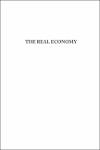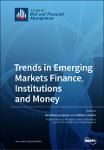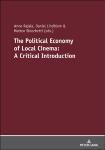Search
Author
- Anne, Rajala (1)
- Daniel, Lindblom (1)
- Federico, Neiburg (1)
- Jane I, Guyer (1)
- next >
Subject
- Finance (2)
- Sociology (2)
- Asian Economics (1)
- bank (1)
- next >
Has File(s)
- true (5)
Search Results
This open access book provides an in-depth examination of Japan's policy responses to the economic challenges of the 1980s and '90s. While MITI's earlier role in promoting rapid growth has been addressed in other studies, this volume, based on official records and exhaustive interviews, is the first to examine the aftermath of rapid growth and the evolution of MITI's interpretation of the economy's changing needs. Covering such topics as the oil shocks, trade conflict with the United States, and the rise and collapse of the so-called bubble economy, it presents a detailed analysis and evaluation of how these challenges were interpreted by government officials, the kinds of policies that were enacted, the extent to which policy aims were realized, and lessons for the longer term. Thi... |
This collection highlights a key metaphor in contemporary discourse about economy and society. The contributors explore how references to reality and the real economy are linked both to the utopias of collective well-being, supported by real monies and good economies, and the dystopias of financial bubbles and busts, in which people’s own lives “crash” along with the reality of their economies. An ambitious anthropology of economy, this volume questions how assemblages of vernacular and scientific realizations and enactments of the economy are linked to ideas of truth and moral value; how these multiple and shifting realities become present and entangle with historically and socially situated lives; and how the formal realizations of the concept of the “real” in the governance of ec... |
Since the waves of financial liberalization in the 1980s, emerging market economies have been accessible to foreign investors. Altogether, they contributed up to 43.8% of the global GDP in 2018, and many of them, such as China, India, Bangladesh, Philippines, Myanmar and Vietnam from 2010 to 2019, are among the fastest-growing economies in the world. Given the high economic growth, the assets issued by companies in emerging markets are viewed as a new set of investment opportunities for global investors and fund managers who seek to improve the risk-adjusted performance of their portfolios. In addition to their risky profile due to the lack of transparency as well as stable and matured institutions, their recent development path faces a number of challenges arising not only from the... |
This special issue provides a collection of 15 papers with modern theories and applications for circular economy, engineering projects, entrepreneurship models, and investor decisions. After the commencing review on Occupational Health and Safety Management-Systems Standards, follow papers which can be classified into four categories which cover the overall scope of special issue. The first category includes papers regarding the micro-level of circular economy. This means case studies in firm-level which implement different techniques to achieve sustainable development and circular economy goals. The findings reveal interesting achievements which are associated with cultural characteristics of the countries these case studies have been conducted. The second category of papers refers... |
The globalization and digitalization of cultural markets presents formidable challenges for local cinema and storytelling. The essays in this collection address some of these challenges from the perspective of a critical political economy of local cinema. Inspiring these contributions is the effort of supporting local cinema as a form of valuable storytelling that is at risk of market-driven extinction because of the greater commercial viability of global or Hollywood cinema and national cinema. |





